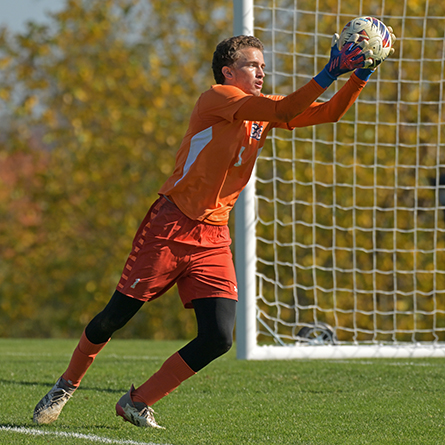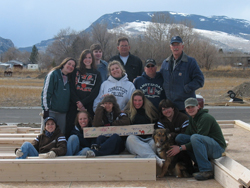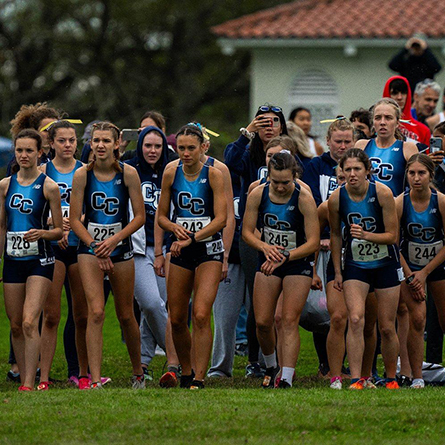
More than three dozen students will spend spring break volunteering

The typical spring break suitcase is packed to the brim with bathing suits and sunscreen. But senior Matthew Daskal is more likely to pack a hard hat and steel-toed boots, while junior Elizabeth Durante plans to bring Band-Aids and an automated external defibrillator.
Daskal and Durante are two of the more than three dozen Connecticut College students who will spend spring break volunteering through an organized trip, an increasingly popular option commonly referred to as an "alternative spring break."
Daskal heads up Connecticut College's annual Habitat for Humanity trip, which this year will send 25 students to help with homebuilding efforts in Bremerton, Wash., and Montgomery County, Md.
"Typically, this trip attracts about 10 students, but this year the number has more than doubled," Daskal said. "People on campus have become much more aware of the positive impact of Habitat, and everyone realizes that there is a great need out there, especially with the current economy."
Durante and fellow junior Stefanie Hinman are heading up a trip of a different nature - on an entirely different continent. They have organized a group of 15 Connecticut College students to accompany Dr. Bill Fridinger on an Asayo's Wish Foundation medical mission to rural Kaberamaido, Uganda. There, the group will deliver much needed medical supplies and help provide basic medical care to the village's residents.
"Both Stefanie and I are certified as American Heart Association Basic Life Support instructors," Durante said, "and all of the team members will have training in basic first aid and CPR."
Hinman added that the group has been meeting for weekly training sessions all year. "We´ve been teaching the students basic medicine - taking vital signs and basic wound care - for example, and have been focusing on the diseases we are most likely to see over there, like malaria and tuberculosis," she said.
Durante said she and Hinman decided to organize the trip after traveling with a similar group from Vassar last year. "Last year's trip was an amazing experience," Hinman said. "Sure, there were some tough, heart-wrenching moments that I wouldn't have had to deal with if I'd just gone to Cancun to party for a week, but a normal vacation doesn't really appeal to me. I'd rather do something useful and make some meaningful connections."
That's a sentiment Daskal, also an alternative spring break veteran, shares. "I love having the opportunity to help provide a deserving family with safe housing," Daskal said.
Junior Rita Holak, who serves as co-president of the College's chapter of Habitat for Humanity, said she is thrilled that so many students are willing to spend their break sawing, drilling and driving nails into walls. "It speaks volumes about the character of Connecticut College students."
Students are also giving up more than just vacation time. This year, the budget for the Habitat trip is about $30,000, while each student going to Uganda will have to pay up to $2,000 to cover airfare and other travel costs.
"The members of our team are responsible for raising the money to pay for their own personal travel expenses," Durante said. "I am floored that so many students are willing to make such a substantial financial sacrifice to serve others."
The students planning to go on the Habitat trip have tried to be creative with fundraising to lower their out-of-pocket expenses. "We hosted an ice skating night and a gingerbread house-making event - one of our favorite traditions," sophomore Naomi Ritz said. "One father agreed to give us a dollar for every mile we ran on a treadmill - up to $250 - and we reached that goal," she added.
Any money raised by the students traveling to Uganda will help pay for the medical supplies they will donate to the village. The group also sent letters to local hospitals, fire departments and physicians requesting medical equipment donations. "Last year we managed to bring upwards of 1,000 pounds of medical supplies," Durante said.
Students are quick to point out that their out-of-pocket expenses are well worth it. "Most people don't realize how rewarding a week of working with Habitat can be," Ritz said. "Instead of sleeping until four in the afternoon, we get to put a roof over someone's head."
For more information or to make a donation, contact Matthew Daskal at mdaskal@conncoll.edu (Habitat for Humanity) or Elizabeth Durante at edurante@conncoll.edu (Asayo's Wish Foundation medical mission).
January 13, 2009
